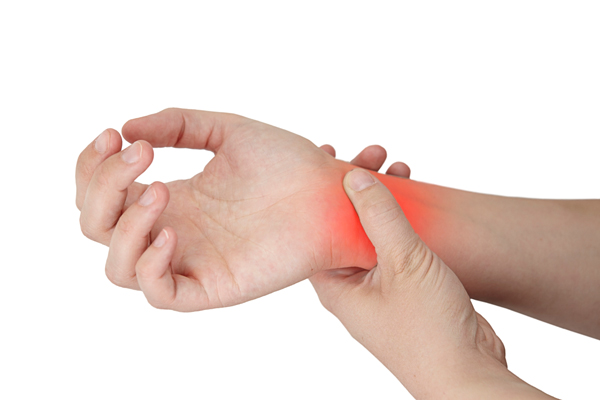Relieving Repetitive Strain Injury with Physiotherapy
Repetitive strain injury refers to pain associated with repetitive movement and overuse of nerves and muscles. It can be felt in almost all body parts. Because of its nature, RSI is also referred to as repetitive motion injuries and repetitive motion disorder.
RSI Symptoms

Repetitive strain injury has various symptoms that can range from mild to severe. Here are some of them:
- Pain in the affected joint or body part
- Throbbing
- Stiffness
- Numbness or loss of sensation
- Weakness in the affected area
Causes
The causes of repetitive strain injury can vary widely. Here are examples of factors and activities that are linked to increased risks of developing RSI.
- Poor posture
- Overuse of muscles
- Repetitive activities
- Vibrating equipment
- Cold temperatures
- Psychological stress
- Fatigue
- Carrying heavy loads
- High-intensity work out done for an extended period
RSI Treatment
Treating RSI starts with identifying its cause. If it is found to be related to a specific activity, you may have to refrain from engaging in it. Here are common types of treatment for RSI.
- Hot or cold packs. Applying a hot or cold pack to the affected area may help relieve pain. Be sure to check its temperature before putting it against your skin.
- Your physician may also recommend the use of painkillers, antidepressants, muscle relaxants, and sleeping pills, if necessary.
- You may also use an elastic support or splints to help relieve strain and pain on affected tendons.
- Surgery may also be performed as a final resort should other treatment methods fail to correct the issue.
- Physiotherapy can be used to help you cope with everyday activities, treat the affected area, and train you how to prevent your injuries from worsening.
RSI Prevention
Prevent repetitive strain injury with these simple tips.
- Ensure proper posture when working. This will help reduce strain on your joints, muscles, and nerves.
- Avoid applying too much force in any given activity. Be sure to take rests in between.
- Warm-up before participating in any physical activity.
- Avoid standing or sitting for too long. Do some stretching, and make it a habit to switch postures often.
- Maintain an active and healthy lifestyle, especially if you tend to have a sedentary routine.
- Give muscles you’re using regularly a rest. If you’re already using your hands heavily, try other activities that require the use of other body parts such as walking.
Physiotherapy for Repetitive Strain Injury
Repetitive strain injury can affect your muscles, joints, nerves or all of them at once. The severity of the pain may vary depending on the type of tissues affected and the location and size of the affected area.
When treating RSI, your physiotherapist’s first goal is to identify which body parts are affected. Then a custom treatment plan is developed for you to help ease sensitivity in the involved structures. Your treatment will involve the following:
- Enhance flexibility of the affected structures
- Boost muscle endurance
- Relieve tissue sensitivity
- Treating areas where nerves are trapped
- Devise a cardiovascular exercise routine
If you feel you’re experiencing RSI symptoms, visit our Physiotherapy clinic in Halifax.
Our physiotherapists provide a one to one treatment approach to ensure all your needs are addressed and that you’re given undivided attention at your every visit.
Call us today at (902) 425-3775 to book your appointment.

Phone: (902) 425-3775
Fax: (902) 425-3774
ONE TO ONE WELLNESS CENTRE
1535 Dresden Row suite 210
Halifax, NS B3J 3T1
Copyright © 2025 One To One Wellness | All Rights Reserved | Powered by H-Cube Marketing